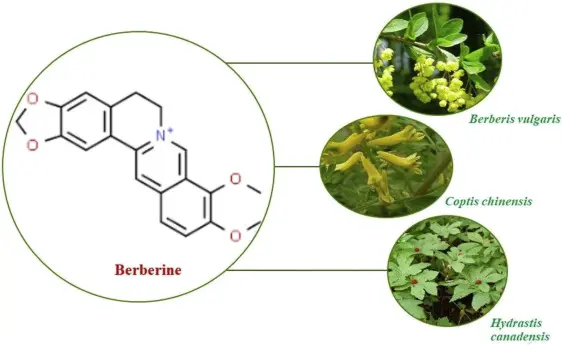Fisetin: A Breakthrough in Anti-Aging Science

Fisetin, a naturally occurring flavonoid, is emerging as a powerful compound in the fight against aging. As a member of the senolytics family—agents that clear senescent cells—fisetin has shown significant potential in promoting longevity and combating age-related diseases. First identified for its potent antibacterial properties in 1966, it has since gained recognition for its wide-ranging health benefits, including antioxidant, anti-inflammatory, anticancer, and neuroprotective effects.

What Is Fisetin?
Fisetin, also known as flavonol or fisetol, is a plant-derived flavonoid found in various fruits and vegetables, such as strawberries, apples, and onions. Extracted from plants like lacquer trees (Toxicodendron vernicifluum), smoke tree (Cotinus Coggygria Scop). Fisetin possesses unique properties that make it a valuable compound for health maintenance. It has been shown to modulate oxidative stress, enhance glutathione levels, and support mitochondrial function.

Key Benefits of Fisetin
1. Antioxidant Power
Fisetin is a powerful antioxidant that neutralizes free radicals and enhances the body’s glutathione levels. By supporting the production of proteins involved in oxidative stress regulation, fisetin helps maintain redox balance and protects cells from damage.
2. Anti-Cancer Properties
Fisetin has demonstrated efficacy against various cancer cell types, including lung, cervical, skin, and colon cancer cells. It works by:
· Inducing apoptosis: Promoting the programmed death of cancer cells through upregulating proteins like Caspase-3, Caspase-9, and Bax while downregulating anti-apoptotic proteins such as Bcl-2.
· Triggering ferroptosis: A novel form of cell death driven by lipid peroxidation and oxidative stress.
Fisetin’s dual mechanism effectively reduces cancer cell proliferation and supports tissue health.
3. Neuroprotective Effects
Fisetin’s ability to cross the blood-brain barrier enables it to protect neuronal health. Research from the Salk Institute in San Diego highlights its role as a "nootropic" substance, promoting cognitive function and memory retention. By clearing senescent cells in the brain, fisetin facilitates the replacement of aged cells with healthier ones, enhancing overall brain function. It is reported to be twice as effective as quercetin in this capacity.

Fisetin as a Leading Senolytic
As a senolytic agent, fisetin selectively targets and removes senescent cells—damaged cells that accumulate with age and contribute to chronic inflammation and tissue dysfunction. This process helps rejuvenate tissues, delay the onset of age-related diseases, and promote overall longevity.
In a 2021 study by the University of Minnesota and Mayo Clinic, fisetin significantly reduced mortality in elderly mice infected with β-coronaviruses. These findings underline its potential as a therapeutic agent for enhancing resilience against infections and age-related health challenges.

Conclusion
Fisetin stands out as a versatile natural compound with immense anti-aging and therapeutic potential. Its benefits extend across cellular health, cancer prevention, cognitive enhancement, and more. As more fisetin-based products enter the market, it offers an accessible solution for those seeking to support longevity and overall well-being. Whether incorporated through diet or supplements, fisetin is a valuable ally in the quest for healthier aging.










